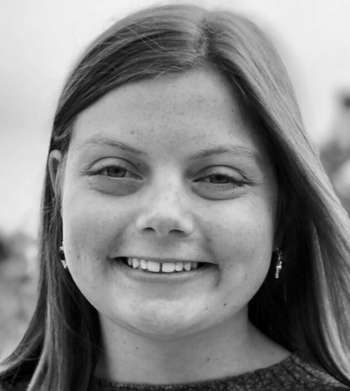Students, faculty accuse BU of ‘white supremacy’ over campus reopening plans
Back2BU, BU’s plan to return this fall, was criticized in the letter for not thinking about how the local community might be affected by certain practices and policies.
Demands include an audit of practices and policies in place and redirection of resources.
BU students and faculty claim that the school has contributed to “white supremacy” in what they say is its failure to protect minority students during the pandemic.
Students and faculty at Boston University wrote a letter calling for the dismantling “of white supremacy culture” at the school, with a focus on campus reopening plans.
The letter titled “A Call for BU to Dismantle Institutionalized White Supremacy’’ came to the attention of much of the school after being featured in an article by The Daily Free Press, BU’s main school newspaper. It was written in recognition of #ScholarStrike, a two-day movement focused on addressing racial injustice in America, held September 8-9.
Within the declaration, the authors argue that many of BU’s practices and policies to allow for the campus to continue operations this fall significantly harm minority groups. Multiple groups on campus took part in writing the letter, including unionized faculty, the Black Student Union, Anti-Racist White Affinity Group Facilitators, Ph.D. Student Coalition, Student Curricula Committee, and others.
“By supporting and even encouraging a dense campus and the return of tens of thousands of inter-state and international students, BU also is increasing the health risk not only to its own campus community but also to the Greater Boston area,” the letter reads. “Pre-existing economic disparities – the result of systemic racism and discrimination – mean that COVID-19 has a disproportionate impact on Black and Latinx communities.”
“Any action which increases the risk of transmission of COVID-19 thus disproportionately affects the health of those communities,” it adds.
[RELATED: Math education prof: 2+2 = 4 ‘trope’ ‘reeks of white supremacy patriarchy’]
The letter lays out the “characteristics” of “white supremacist culture,” which include, “paternalism, either/or thinking, power hoarding, a scarcity worldview, a fear of open conflict and tendency toward secrecy in operations, a preference for quantity (or speed) over quality, and a ‘progress is bigger and more’ attitude.”
Some of the complaints include BU going back in person against city councilor objections, not sharing budget projections and cuts amid the pandemic, and not providing the same testing resources offered to students to the surrounding community.
Dr. Michael Siegel, a community health sciences professor at BU, told Campus Reform he felt compelled to support the letter for multiple reasons, including the unfair standards of the “Learn From Anywhere” model and teaching assistants being hired by the School of Public Health if they agreed to teach in person.
“By bringing students back to class in order to protect tuition dollars, BU is putting at risk the most vulnerable populations, which include disproportionately communities of color,” said Siegel in an email. “While the decisions are being made largely by White administrators, they are putting at risk largely people of color. The communities were given no voice.”
Siegel and others behind the letter provided a list of demands they believe will help remedy the situation and decrease the alleged white supremacy. They want “anti-racist and anti-oppressive policies and procedures,” to redirect resources to protect the most vulnerable members of BU and the local community and to engage in an audit of the school’s organizational policies and practices to make sure they are up to appropriate racial justice standards.
[RELATED: UCSD ‘Anti-Racism Challenge’ claims American policies are ‘grounded in white supremacy’ ]
Not everyone on campus feels these statements within the document accurately reflect the effort BU has put in to ensure a safe return to school for students and staff. The Boston University Young American’s for Freedom chapter president, Nicholas Deane, told Campus Reform that the authors of the letter are attempting to shut down anyone who disagrees with them.
“Instead of weighing the merits of Boston University’s actions in regards to the COVID-19 pandemic, the authors of this letter only seek to utilize ‘white supremacy’ as a way to shut down any opposition to the policies demanded,” Deane said. “The authors explicitly allege that anyone who disagrees with the actions insisted within the letter either promotes or are complicit in a system ‘white supremacy.’”
BU has been no stranger to the phrase “white supremacy” in recent months. The name of the school’s mascot, Rhett, was called into question over its connection to the character Rhett Butler from “Gone with the Wind,” a movie that found itself at the center of controversy, given the racial reckoning happening across America. Arcangelo Cella, Boston based attorney and BU alumnus, started a petition in June that urged the university to consider changing the name, referring to the film as an “ode to white supremacy.”
[RELATED: BU considers renaming mascot over ‘Gone With the Wind’ connection]
University President Robert Brown notified the school community in early July that the administration would reevaluate if Rhett was still an appropriate name for the school’s mascot, due to recent allegations of racist tropes and themes in the film.
While the BU administration has not answered calls from this most recent declaration from the BU community, Deane said they would be wise to disregard the group’s comments.
“Considering the disingenuous premise, President Brown would do well to ignore this ridiculous letter,” he added.
The letter ended by urging BU to be better when it comes to operations.
“We call on BU to live into its own strategic vision of being anti-racist and anti-oppressive,” the authors state. “Make us proud instead of discouraged. Be a beacon to the larger world of higher education. Instead of accepting that world as it has been, dare to lead from a wider moral imagination.”
Follow the author of this article on Twitter: @alexcorey320

